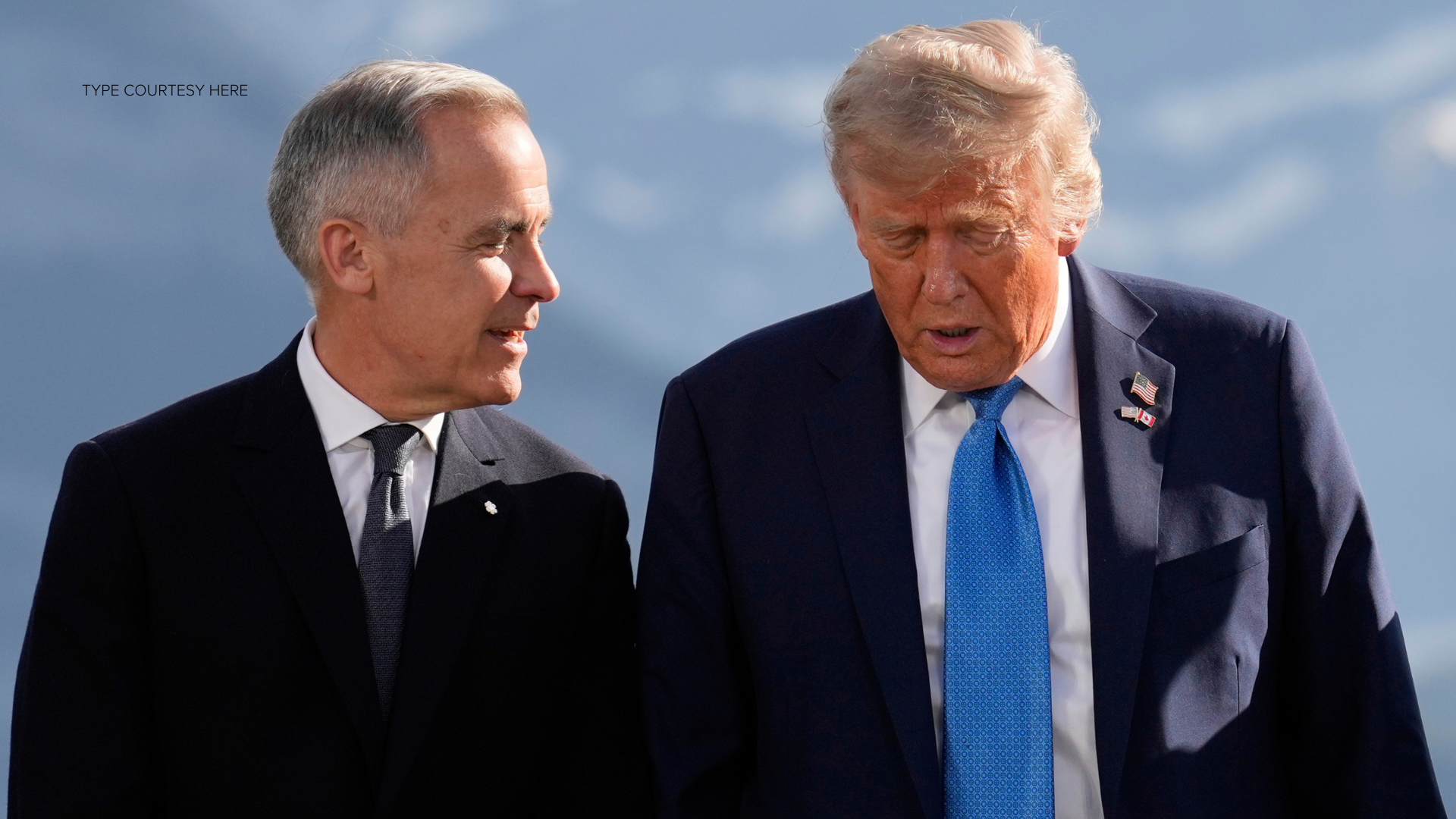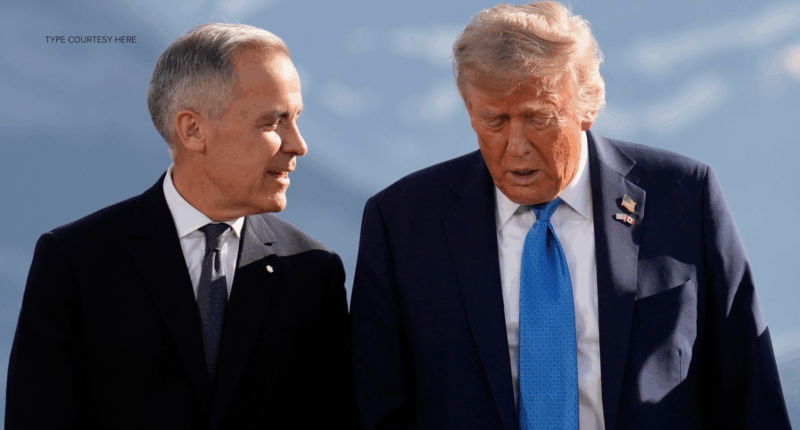Share this @internewscast.com
WASHINGTON — Canadian Prime Minister Mark Carney is set to meet with President Donald Trump in the Oval Office on Tuesday amid tensions resulting from Trump’s trade policies and his controversial talk of annexation.
This will mark Carney’s second trip to the White House, coinciding with the critical discussion of the free trade agreement review scheduled for next year, which is vital for Canada’s economic stability. The U.S. is the destination for over 77% of Canadian exports.
Trump’s rhetoric about turning Canada into the 51st state and recent tariffs have left Canadians feeling profoundly let down. The relationship with the U.S., a long-standing ally and neighbor, is strained like never before.
“We’ve experienced highs and lows, but this is the darkest period in our bilateral relations I’ve ever witnessed,” remarked Frank McKenna, who formerly served as Canada’s ambassador to the U.S. and now holds the position of deputy chairman at TD Bank.

FILE – Canada’s Prime Minister Mark Carney converses with President Donald Trump before a group photo at the G7 Summit on June 16, 2025, in Kananaskis, Canada.
AP Photo/Mark Schiefelbein, File
“Canadians aren’t being told what to do; they’re expressing their stance independently,” McKenna explained. “I hear daily from people altering vacation plans and from business owners shifting reward trips or official business meetings away from the U.S. It’s a full-blown backlash.”
There is fear in Canada over what will happen to the U.S.-Mexico-Canada Agreement. Carney is looking to get some relief on some sector-specific tariffs, but expectations are low.
“Improving relations with the White House ahead of the USMCA review is certainly an objective of the trip, but opposition parties and part of the Canadian public will criticize Prime Minister Carney if he doesn’t achieve some progress on the tariff front at this stage,” said Daniel Béland, a political science professor at McGill University in Montreal.
Trump said Monday that he anticipated Carney wanted to use the meeting to discuss trade.
“I guess he’s going to ask about tariffs, because a lot of companies from Canada are moving into the United States,” Trump, a Republican, told reporters after signing an executive order related to Alaska. “He’s losing a lot of companies in Canada.”
Carney has said the USMCA, which is up for review in 2026, is an advantage for Canada at a time when it is clear that the U.S. is charging for access to its market. Carney has said the commitment of the U.S. to the core of USMCA means that more than 85% of Canada-U.S. trade continues to be free of tariffs. He said the U.S. average tariff rate on Canadian goods is 5.6% and remains the lowest among all its trading partners.
But Trump has some sector-specific tariffs on Canada, known as Section 232 tariffs, that are having an impact. There are 50% tariffs on steel and aluminum imports, for example.
McKenna said he is hearing Canada might get some relief in steel and aluminum. “It could be 50% to 25% or agreeing on tariff-free quotas to allow the steel and aluminum to go through at last year’s levels,” he said.
The ties between the two countries are without parallel. About $2.5 billion (nearly $3.6 billion Canadian) worth of goods and services cross the border each day. Canada is the top export destination for 36 U.S. states. There is close cooperation on defense, border security and law enforcement, and a vast overlap in culture, traditions and pastimes.
About 60% of U.S. crude oil imports are from Canada, and 85% of U.S. electricity imports are from Canada.
Canada is also the largest foreign supplier of steel, aluminum and uranium to the U.S. and has 34 critical minerals and metals that the Pentagon is eager for and investing in for national security.
“The bigger prize would be getting a mutual agreement to negotiate as quickly as possible the free trade relationship,” McKenna said. “If the United States were to threaten us with the six months’ notice of termination, I think it would represent a deep chill all across North America.”
Copyright © 2025 by The Associated Press. All Rights Reserved.

















